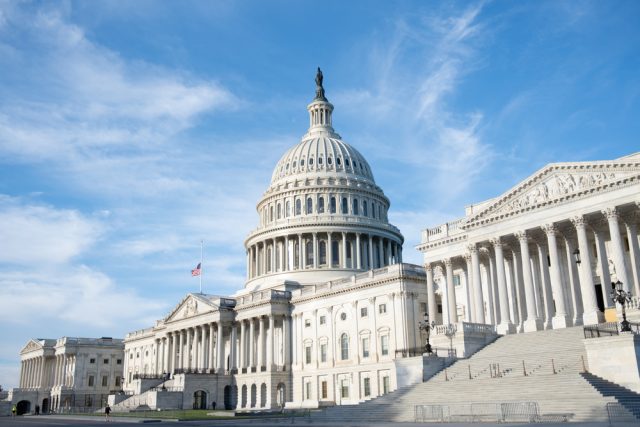
As the two largest democratic blocs, the EU and the US share the key responsibility of protecting freedom and safeguarding democracy in the world. That cannot be fulfilled in a vacuum: it requires peace and prosperity – and not just at home. Unsurprisingly, politicians from both sides of the Atlantic have traditionally focused on enhancing trade opportunities for their respective economies.
Once again, the unique challenges posed by the Russian aggression of Ukraine have tested the Transatlantic relationship and galvanized the Western democratic bloc. This, despite the significant costs borne by European countries, whose economies have been particularly exposed to the impact of sanctions and resulting counter-sanctions. The ECR Party, led by the Prime Minister of Italy, Giorgia Meloni, has solidly anchored European Conservatives on positions that are unambiguously pro-Nato and filo-Atlanticist.
Against this backdrop, an ECR Party delegation comprising members from Italy, Latvia, Luxembourg, the Netherlands, Poland, Spain, and Sweden has recently visited Washington to meet with counterparts from the world of politics and the think-tank community. While the goal was, as always, to enhance cooperation between both sides of the Atlantic, the visit occurred at a very important juncture. Both economies appear set to move towards more protectionist policies. Indeed, the Inflation Reduction Act contains a number of provisions that are clearly discriminatory towards products, typically electric vehicles, made outside of the US or batteries made with raw materials extracted or processed outside of American borders.
The paradox is that the only exception provided is for those countries that have a free trade agreement with the US. However, the EU does not have one, despite the significant partnership built over time.
On the other hand, the US points out that the EU is a market, yet difficult to access from the outside. For instance, its policymakers convey that much of the European legislation and initiatives in the area of data privacy has a discriminating effect against non-EU companies. As we have seen all too well, no-one is set to win over this kind of dispute, or rather citizens from both sides stand to loose.
On the external front, the Ukrainian crisis has added another dimension of cooperation against a war of aggression fought outside European borders. But this new domain of cooperation has to be closely watched to ensure that the burden sharing of costs and benefits are sustainable within the Western coalition.
The ECR Party delegation visit to Washington has also provided the occasion of observing the proceedings of CPAC’s conference in the traditional settings of National Harbor, MD – just outside of Washington, DC. Since its foundation in 1974 when not-yet-President Ronald Reagan gave the inaugural keynote address, CPAC has been a forum where conservative activists and politicians engage and build a dialogue with their electoral base. It also provides a venue where Presidential candidates try to gauge the political space for their bid.
While American conservatism is not European conservatism – and each boasts different nuances – the ECR Party maintains a close dialogue with its American counterparts. Along the same lines, ECR will engage the new administration equally closely, regardless of who will win the Republican nomination and potentially the Presidential election in November 2024.



 Subscribe
Subscribe